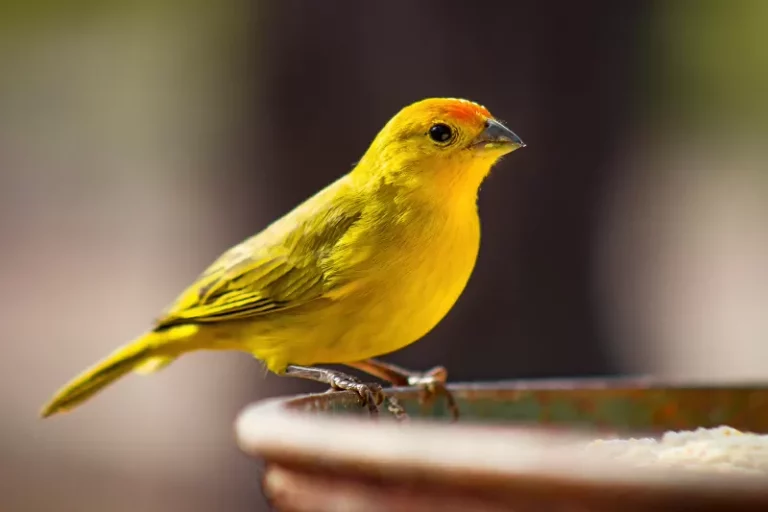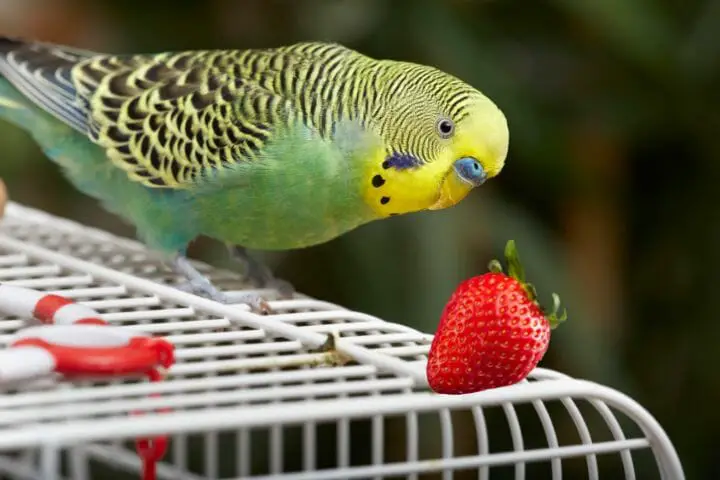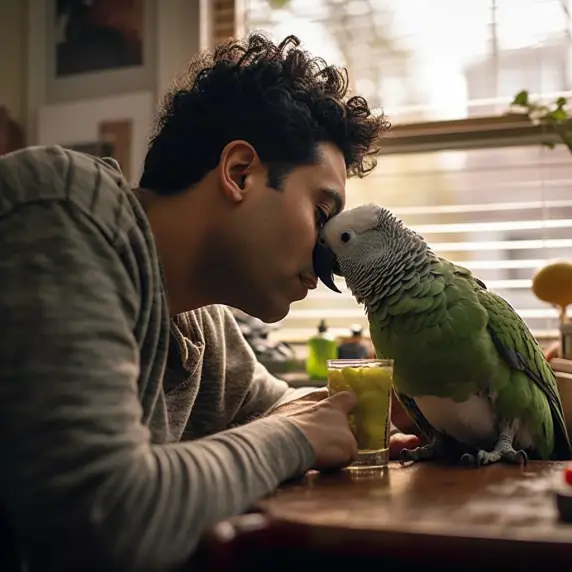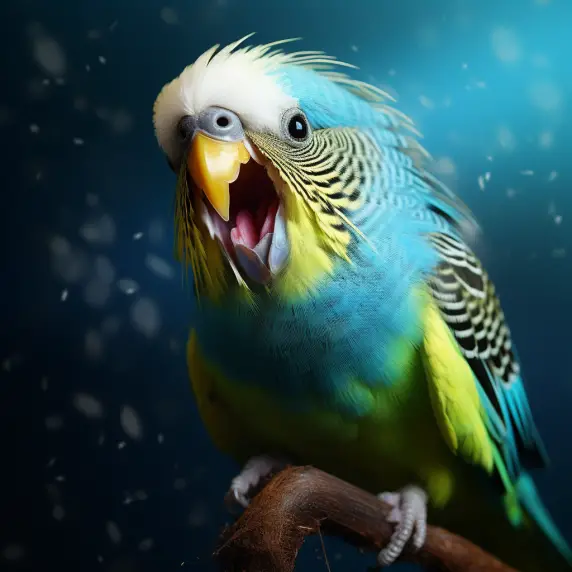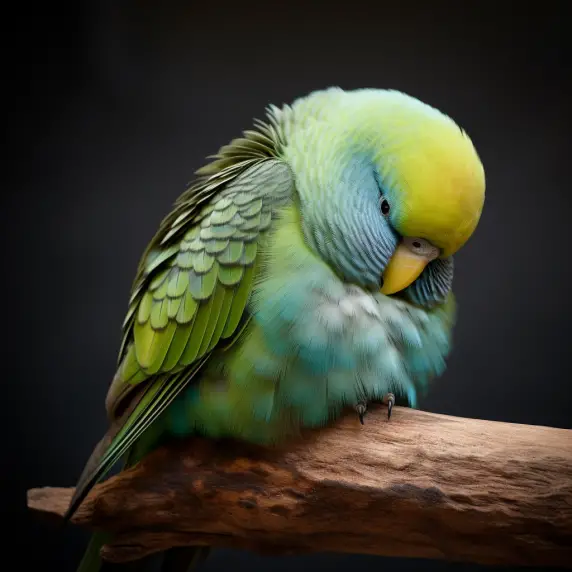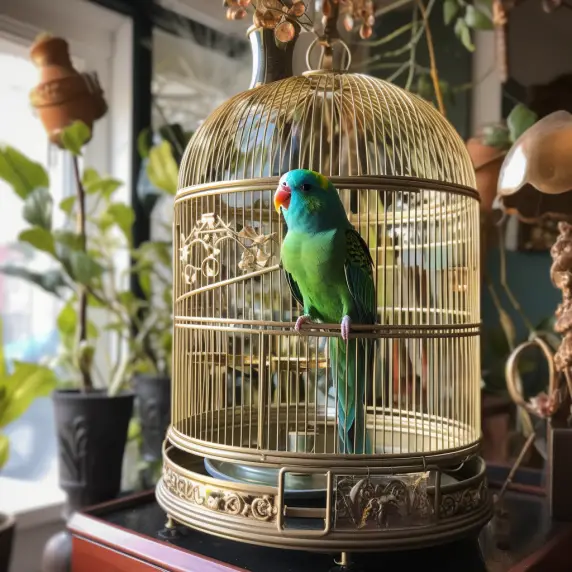Why Do Budgies & Parakeets Die Suddenly?
Understanding why budgies and parakeets die suddenly can be a difficult and emotional process. These bright and cheerful birds bring joy into our lives, and when their lives are abruptly cut short, they can leave us feeling lost and confused.
However, by exploring common causes and understanding their health needs, we can help to create a safer and more nurturing environment for our feathery friends.
This blog post will discuss the different factors that can lead to the sudden death of budgies and parakeets, aiming to give owners a clearer understanding of how to ensure their pets live long and healthy lives.
Short answer
Short answer: Budgies and parakeets can die suddenly for a variety of reasons, often linked to underlying health issues or environmental factors that might not be readily apparent. Common causes include diseases (such as Psittacine Beak and Feather Disease, avian gastric yeast, or tumors), dietary deficiencies, accidents, extreme temperatures, stress, or exposure to toxins. As budgies and parakeets are skilled at masking illness, signs of distress might only become visible when it’s too late. Regular vet check-ups, a balanced diet, a safe and comfortable environment, as well as careful monitoring of their behavior can help prevent sudden death. However, it’s important to remember that despite our best efforts, some situations remain unpredictable and beyond our control.
Why Do Budgies and Parakeets Die Suddenly?
The sudden death of budgies and parakeets can be shocking and heartbreaking. It often leaves pet owners searching for answers. Sudden avian death can be attributed to a number of causes, many of which may not be immediately apparent. Let’s explore some of the common reasons:
1) Disease and Illness
Budgies and parakeets, like other birds, can suffer from a range of diseases, including avian flu, psittacosis, and parrot fever. These conditions, if not detected and treated early, can lead to sudden death. Regular check-ups with an avian veterinarian can help in early detection and treatment.
2) Poor Diet
An imbalanced or poor diet can lead to numerous health problems, such as vitamin deficiency or obesity, which can significantly shorten a bird’s lifespan. It’s crucial to provide a varied diet that includes seeds, vegetables, fruits, and bird-safe pellets.
3) Accidents
Accidental injuries, such as flying into a window or getting trapped, can cause severe, sometimes fatal, injuries. Ensuring the bird’s living and flying spaces are safe can help prevent such accidents.
4) Stress
Budgies and parakeets are sensitive to changes in their environment. Factors such as sudden temperature changes, loud noises, or a new pet in the house can lead to stress, which in severe cases can be fatal.
5) Toxins and Chemicals
Household items such as scented candles, cleaning chemicals, certain types of cookware, and even some types of houseplants can be toxic to birds. Make sure to bird-proof your home and keep harmful substances out of reach.
Remember, sudden death in budgies and parakeets is not always preventable. However, by understanding these potential causes, you can take steps to mitigate the risks and provide your pet with a safe and healthy environment.
Death Scenarios: Understanding Different Circumstances
Let’s take a deeper dive into different circumstances under which budgies and parakeets might die suddenly. It’s essential to remember that every bird is unique, and understanding these scenarios can help us better care for our feathered friends.
My Budgie Died Overnight
Sometimes budgies may pass away in their sleep, leaving their owners to find them the next morning. This sudden occurrence may be due to undiagnosed illness, extreme stress, or a sudden drop in temperature during the night.
Using a bird-safe heater during cold weather can help maintain a constant, comfortable temperature in their environment.
Budgie Died with Eyes Open
If a budgie dies with its eyes open, it might have experienced sudden stress or trauma. It’s worth noting that the position of the eyes doesn’t necessarily provide conclusive information about the cause of death.
My Budgie Died, What Should I Do?
When your budgie passes away, it’s essential to remove it from the cage, especially if you have other birds, to prevent the potential spread of disease. If the cause of death isn’t apparent, consider seeking a post-mortem examination from an avian veterinarian to understand the cause and prevent similar future incidents.
Baby Budgie Died Suddenly
Baby budgies are particularly vulnerable to sudden death due to their fragile health. They may not have developed a strong immune system yet and are susceptible to infections, dietary issues, and temperature fluctuations.
Budgie Dead at the Bottom of Cage
Finding a budgie dead at the bottom of its cage could suggest an accident, such as a fall, or illness that rendered the bird too weak to perch. It’s vital to ensure the cage environment is safe and monitor your bird’s health regularly.
Budgie Died of Cold
Budgies are sensitive to cold temperatures. If they are exposed to a cold environment for an extended period, it can lead to hypothermia, which can be fatal.
Both Budgies Died Suddenly
The simultaneous death of both budgies could indicate a shared cause, such as exposure to toxins, shared illness, or environmental stressors.
One of My Budgies Died, Should I Get Another?
If one of your budgies has passed away, and you have other budgies, monitor them closely for signs of illness or distress. It’s often advisable to wait before introducing a new bird into the environment to ensure it’s safe and the remaining budgies are healthy.
If you only had one budgie and it passed away, consider taking some time to grieve before getting another bird.
Parakeet Scenarios
Similar scenarios apply to parakeets as they share many of the same vulnerabilities as budgies. Sudden death in parakeets could also be due to undiagnosed illness, poor diet, stress, exposure to toxins, or environmental factors. Understanding the cause can help you provide the best possible care for your parakeet.
Impact of Environmental Factors: Cold and Sudden Death
Environmental factors play a significant role in the health and well-being of budgies and parakeets. Among these, temperature is one of the most crucial to monitor.
Budgies and parakeets are native to warm climates and are highly sensitive to sudden temperature fluctuations, particularly cold ones. When exposed to a cold environment for a prolonged period, they can develop hypothermia.
This condition can lead to decreased heart rate, slowed metabolic function, and if left unattended, it can be fatal.
However, death due to cold doesn’t occur without warning signs. Typically, a bird suffering who dies from the cold will exhibit certain behaviors, such as puffing up their feathers, lethargy, and a decreased appetite.
If these signs are observed, it’s essential to immediately adjust the temperature to a more comfortable range and consult an avian veterinarian.
To prevent temperature-related issues, it’s advisable to maintain your bird’s environment at a consistent temperature between 65 and 80 degrees Fahrenheit (18-27°C). You can achieve this by positioning the cage away from drafts and using bird-safe heaters during colder months.
Also, remember that abrupt changes in temperature can be as harmful as exposure to cold. Therefore, any adjustments to your pet’s environment should be gradual to avoid causing undue stress.
In addition to temperature, other environmental factors can contribute to sudden death in birds. These include exposure to toxic substances (such as certain houseplants, fumes from non-stick cookware, or cigarette smoke), inadequate cage size causing stress and accidents, poor diet, and lack of clean water.
Ensuring a safe, toxin-free environment and providing a balanced diet will significantly contribute to your bird’s overall health and longevity.
Recognizing the Signs: Subtle Clues Before Sudden Death
Despite the often abrupt nature of sudden death in budgies and parakeets, there are often subtle signs and symptoms present that, if noted early, could aid in preventing such incidents. Observing your bird’s behavior, eating habits, and physical condition regularly can help detect problems early.
Change in Eating Habits: Budgies and parakeets are known for their voracious appetite. A sudden drop in food consumption or a change in drinking habits can be a sign of illness.
Ruffled Feathers: A bird that’s constantly puffing up its feathers could be trying to regulate its body temperature due to illness.
Lethargy: An active bird becoming suddenly less active or weak is cause for concern. Budgies and parakeets are naturally lively creatures. If they’re spending more time at the bottom of the cage or not flying, it may be a sign that they’re not feeling well.
Changes in Droppings: Check your bird’s droppings regularly. Changes in color, consistency, or frequency could be indicative of health issues.
Respiratory Issues: Watch for signs of respiratory distress, such as rapid breathing, wheezing, or a runny nose.
Changes in Appearance: Physical changes like weight loss, dull eyes, or changes in beak or feather condition can be indicative of an underlying health problem.
It’s important to keep in mind that budgies and parakeets, like most birds, are masters at hiding their illness, a survival trait in the wild to avoid appearing weak to predators.
Therefore, if you notice any of these signs, it’s recommended to seek immediate veterinary attention. Early diagnosis can mean the difference between life and death.
How to Prevent Sudden Budgie or Parakeet Death
While it can be alarming to consider the prospect of sudden death in budgies and parakeets, there are steps you can take to mitigate the risks and ensure your feathered friend enjoys a safe and healthy life. Here’s how you can contribute positively to your bird’s longevity:
Commit to Regular Veterinary Checkups: It’s essential to develop a solid relationship with an avian veterinarian. Regular health checkups can identify potential health concerns early, often before they can escalate into serious problems.
Maintain a Balanced Diet: Nutrition plays a pivotal role in your bird’s overall health. A balanced diet rich in fruits, vegetables, and high-quality pellets, in addition to seeds, can provide your bird with all the necessary nutrients they require to thrive.
Prioritize Cleanliness: Hygiene is crucial when caring for budgies or parakeets. Regularly clean the cage and the bird’s surrounding environment, and always ensure the water and food bowls are free from contaminants. This proactive approach can dramatically decrease the risk of bacterial or fungal infections.
Create a Safe Environment: Be vigilant about possible threats in your home, such as open windows, potentially toxic plants, harmful chemicals, or other pets that might pose a danger.
Minimize Stress: Endeavor to reduce any sources of stress for your bird. A calm, quiet environment with a consistent routine and regular interaction can significantly contribute to your bird’s emotional well-being and overall health.
Ensure Proper Hydration: Fresh, clean water should always be accessible to your bird. Dehydration can lead to severe health complications and potentially cause sudden death.
Promote Adequate Exercise: Regular physical activity is key to maintaining good health in budgies and parakeets. Make sure your bird has plenty of toys to engage with, and let them out of the cage for supervised flight time in a safe environment whenever possible.
It’s important to remember that prevention is always better than cure. By adopting these precautions, you’ll significantly enhance the likelihood of your budgie or parakeet leading a long and healthy life.
Losing a Bird: The Next Steps
Coping with the sudden death of a budgie or parakeet is undoubtedly a tough experience, especially considering the emotional bond pet owners share with these charming and intelligent creatures.
It’s essential to deal with the situation with sensitivity, taking proper steps to ensure the well-being of other birds if any, and giving yourself time to grieve.
Dealing with the Loss: The sudden loss of your budgie or parakeet can evoke a myriad of emotions, from shock and disbelief to profound sadness. It’s essential to allow yourself time to grieve and process your feelings. Don’t hesitate to seek support from fellow bird owners, friends, family, or professional counsellors if you need it.
Ensuring the Health of Remaining Birds: If you have other birds, it’s critical to ensure that they are not at risk. The sudden death of a companion can cause significant stress in remaining birds, potentially making them more susceptible to illness. Keep a close eye on them, ensuring they are eating and drinking normally and don’t exhibit any signs of illness.
Post-Mortem Examination: If you are unsure why your bird died, you may wish to consider a post-mortem examination. This examination, which must be performed by an avian vet, may provide you with closure and understanding about your bird’s death.
This step is particularly crucial if you have other birds at home, as it can help identify if your bird died from a contagious disease.
Consideration for a New Bird: If you decide to bring another bird into your home, ensure you have taken the time to grieve and process your loss fully. Bringing in a new bird too soon might hinder the grieving process and inadvertently put pressure on your new pet.
Handling the Remains: You may want to bury your budgie or parakeet in a quiet, peaceful location. Some people choose to cremate their birds and keep their ashes as a remembrance. In either case, handle your pet’s remains with respect, and adhere to local regulations regarding pet burials or cremation.
The loss of a beloved pet is undoubtedly difficult, but it’s crucial to remember the joy and companionship they brought to your life. Reflecting on the positive memories can provide comfort and help you move forward.
Handling the Loss of One Bird in a Pair
When one bird in a pair dies suddenly, it doesn’t just affect the pet owner. The remaining bird can also experience profound changes, as budgies and parakeets are social creatures who form strong bonds with their flock mates. It’s essential to take measures to ensure the surviving bird copes well with the loss.
Recognizing Grief in Your Bird: Birds can exhibit signs of grief after losing a companion. You might notice changes in their behavior, such as reduced activity, loss of appetite, or even plucking their own feathers. They might also make calls more frequently as if searching for their lost companion.
Providing Extra Care and Attention: Spend more time with your surviving bird, engaging them in interactive play and stimulating activities. Your presence and attention can help alleviate feelings of loneliness and stress.
Monitoring Health: Grieving birds can become more susceptible to illness due to reduced immunity from stress. Keep an eye on your bird’s behavior, appetite, and droppings. If you notice any changes or signs of illness, consult with an avian veterinarian immediately.
Introducing a New Companion: If you’re considering introducing a new bird to your surviving bird, wait until your surviving bird has had time to adjust to the loss. When introducing a new bird, do so gradually and under supervised circumstances. Keep in mind that not all birds will automatically get along, so it’s essential to monitor their interactions closely.
In dealing with the loss of one bird in a pair, your goal should be to provide the remaining bird with a comfortable and caring environment, helping them navigate through this challenging time.
Remember that each bird is unique and may cope with loss differently. Being patient and understanding will go a long way in ensuring your bird’s well-being during this difficult period.
The Importance of Regular Vet Check-Ups
Sudden death in budgies and parakeets can be an unfortunate reminder of the fragility of these beautiful birds. One of the critical steps to preventing unexpected loss and ensuring the long-term health of your feathered friends is by committing to regular vet check-ups.
Early Detection of Potential Health Issues: Regular vet visits help identify potential health problems before they become serious. Budgies and parakeets, like many other birds, are adept at hiding signs of illness due to their survival instincts in the wild.
Regular check-ups can detect any abnormalities early and implement appropriate treatment promptly.
Nutritional Advice: An avian vet can provide valuable advice on maintaining a balanced diet for your budgies and parakeets, ensuring they get all the necessary nutrients for their well-being. Nutritional deficiencies can lead to health problems and even contribute to sudden death.
Behavioral Assessment: A vet can observe your bird’s behavior during check-ups and provide guidance on managing behavioral issues, including stress, which could lead to health problems if unaddressed.
Routine Health Procedures: Regular check-ups also allow for routine health procedures such as beak and nail trims, or parasite checks, further improving your bird’s overall health.
Regular vet check-ups should be seen as a necessary part of owning and caring for budgies and parakeets. These check-ups serve as an essential preventative measure, helping to ensure your birds live long, healthy, and happy lives.
Grieving and Moving On: Dealing with the Sudden Loss
Losing a pet is always a heart-wrenching experience, and the sudden death of your budgie or parakeet can leave you in shock and deep sadness. How you handle this loss is a personal journey, but there are a few steps you can take to ease the process.
Allow Yourself to Grieve: The loss of a pet, no matter how small, can be a significant event. Acknowledge your feelings and give yourself permission to grieve. Remember, it’s perfectly normal to feel a deep sense of loss and sadness.
Understand It’s Not Your Fault: Sudden death in budgies and parakeets can occur due to various reasons, many of which are beyond your control. Understand that you provided your pet with a loving home, and sometimes these unfortunate incidents happen despite our best efforts.
Create a Memorial: Creating a small memorial, like a photo album or a special spot in your garden, can provide a sense of closure and serve as a place to remember your pet.
Reach Out to Others: Sharing your feelings with friends or family members who understand the bond between pets and their owners can provide comfort. There are also numerous online communities and support groups where you can share your feelings and experiences with others who’ve had similar experiences.
Consider Another Pet When Ready: Each pet has a unique place in our hearts. When you feel ready, consider giving another budgie or parakeet a loving home. Remember, adopting another pet isn’t about replacing the one you lost but creating a new, unique bond.
Dealing with the sudden loss of a pet is never easy. But with time, the pain eases, and fond memories of your time together can bring comfort and peace.
Frequently Asked Questions
Why is my budgie suddenly dying?
Sudden death in budgies can be due to several factors, including disease, malnutrition, stress, environmental factors such as temperature extremes, or even genetic predisposition. It’s always best to consult with a vet if you notice any changes in your budgie’s behavior or health.
Why did my bird die suddenly?
Birds can hide signs of illness very effectively, making it appear as though they’ve died suddenly when they have actually been unwell for some time. Other potential causes of sudden death can be stress, accident, exposure to toxins, or undiagnosed medical conditions.
What can a budgie die from?
Budgies can die from various causes, including bacterial or fungal infections, tumors, malnutrition, exposure to toxins, stress, accidents, or age-related diseases.
What happens when one budgie died?
If one budgie dies and you have other budgies, it’s essential to remove the deceased budgie from the cage immediately to prevent the potential spread of disease. You should also closely monitor your remaining budgies for signs of illness.
What causes parakeets to die suddenly?
Like budgies, parakeets can die suddenly from a range of causes, including disease, stress, malnutrition, exposure to toxic substances, extreme temperatures, or underlying medical conditions that were not previously detected.
Why did my bird die randomly?
It may seem random, but there’s usually an underlying cause. Birds are adept at hiding illness, so they may appear healthy until they suddenly pass away. This is why regular vet check-ups are crucial for early disease detection.
What to do when a parakeet dies?
If your parakeet dies, ensure you remove it from the cage immediately, especially if you have other birds. Depending on local regulations, you may bury your parakeet in your yard, or you can consult with your vet for other options, including cremation.
Can parakeets live alone after one dies?
Parakeets are social creatures and often bond closely with their cage mates. If one dies, the remaining parakeet may exhibit signs of grief or depression. It’s essential to give them extra attention and care during this time.
In some cases, introducing a new companion can be beneficial, but it must be done with careful consideration and gradual introduction.
Final Thoughts
The sudden death of a beloved budgie or parakeet can be a heart-wrenching experience. These bright, cheerful birds often become cherished members of our families, and their unexpected loss leaves a profound void.
Understanding the potential reasons for their sudden demise helps us become more vigilant caretakers. It empowers us to ensure we provide a safe, enriching environment for these delightful creatures and can assist us in mitigating risks that may contribute to their untimely passing.
From understanding the typical scenarios surrounding sudden death to learning about the impact of environmental factors, disease, and diet, we can enhance our birds’ lives. Equally important is recognizing the signs of impending danger and knowing when to consult a veterinarian.
It’s our responsibility as pet owners to stay informed, not just for the sake of our feathered friends’ health, but also for their overall wellbeing and happiness.
In the end, dealing with the loss, whether it’s deciding on the next steps or navigating the dynamics of companion birds, is an integral part of the process. Our hope is that this guide brings you the knowledge and understanding you need when facing these challenging situations.
Remember, it’s the love, care, and happy moments we share with our birds that truly count. Cherish them every day.

